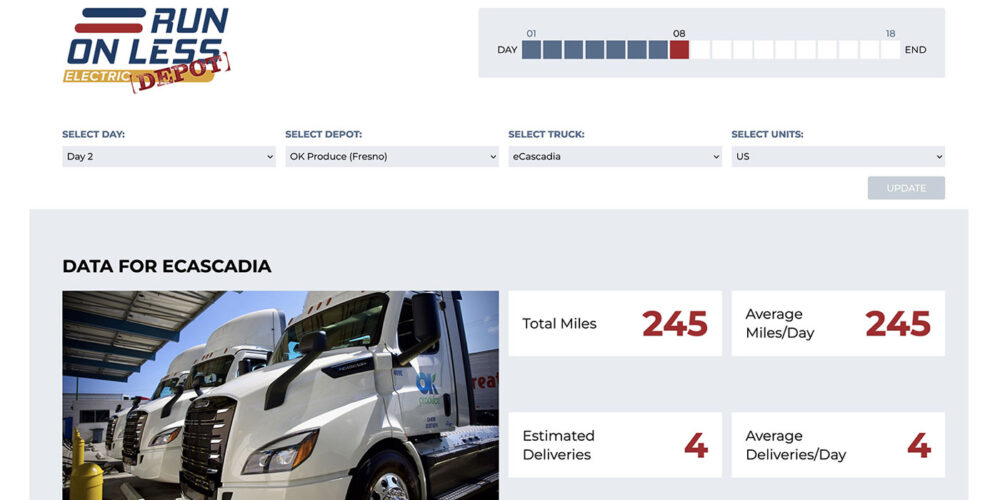
The North American Council for Freight Efficiency (NACFE) and RMI launched Run on Less–Electric DEPOT (RoL-E DEPOT). NACFE said this was to understand the current state of electric trucking in North America, isolate areas that were going well and those where the industry is challenged, and bring about better and faster solutions for the industry.
Since September 11, data has been collected from 22 trucks operating out of 10 fleet depots. “The data collection is going well. We used this data along with work we completed prior to the Run to identify the current state of electric trucking and areas where we can expedite improvements to the known challenges,” Mike Roeth, NACFE’s executive director, said.
Small depots in urban areas require smaller amounts of power, less investment and less time to complete. Here are some of the data collected so far:
- Daily Purolator and UPS delivery routes are proving to be in the 14-42 mile range.
- Frito-Lay completely transformed its Queens location in about one year, needing only 0.9 MWh/day of electric energy.
- Fleets are charging many trucks with a few chargers, as evidenced by US Foods operating 15 heavy-duty tractors with only five portable chargers.
- Fleets, along with their utilities and engineering, procurement and construction partners are delivering big power — up to 5MWs — to these depots as well as to charging-as-a-service sites, like WattEV.
- There is a significant amount of electricity needed for these large heavy-duty trucks. It is predicted that Scheider’s South El Monte depot would use 40.2 MWh/day if it were 100% electric, the highest daily energy demand we projected.
- The Tesla Semis at PepsiCo’s Sacramento beverages depot have completed 384 miles on a single charge and 806 miles in a single 24-hour day, enabled by fast 750 kW charging.
- Other Class 8 tractors are demonstrating range at double that of the trucks that took part in Run on Less – Electric in 2021. There is better efficiency, including optimizing regenerative braking and return-to-base charging during single-driver shifts. This has occurred consistently at OK Produce, Penske, Performance Team, PepsiCo and Schneider.
Read the full article here



